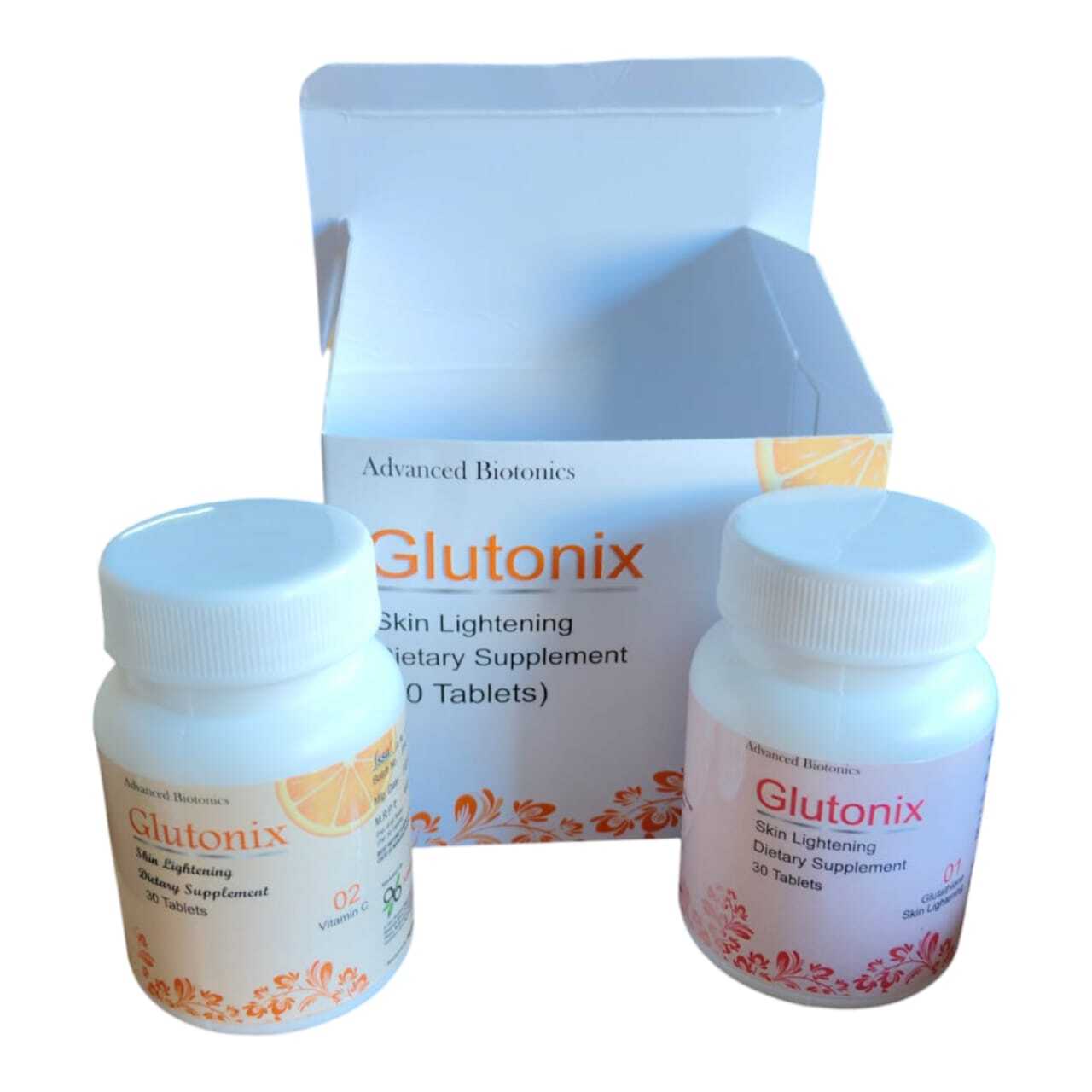Glutonix Glutathione Skin Whitening Dietary Supplement
Glutathione, known as the “master antioxidant,” is made from three potent amino acids: cysteine, glutamate, and glycine. GSH is on the front lines of your defense against free radicals, which are the DNA-damaging compounds found in pollutants, cigarette smoke, and sun overexposure.Glutathione is part of your body’s built-in antioxidant defense system that helps protect you from these free radicals. But if the good versus evil axis gets out of whack and there are more free radicals in the body than antioxidants, it results in a condition called oxidative stress. Ongoing oxidative stress is linked to many chronic diseases (1) including cancer, cardiovascular disease, diabetes, osteoarthritis, and dementia. “Glutathione can alleviate the effects of oxidative stress,” says Venketaraman. But here’s the thing: As you age, your body’s ability to produce glutathione decreases, leaving you more vulnerable to a slew of diseases and health issues (2). Reduced glutathione levels have been linked to conditions and problems including:
- Alzheimer’s
- Cancer
- Chronic liver disease
- Cognitive impairment
- Diabetes
- High blood pressure
- Infertility
- Mental health disorders
- Multiple sclerosis
- Parkinson’s disease
- Neurodegenerative disorders

Benefits of Glutathione
In addition to reducing oxidative stress, glutathione also plays other important roles in the body, including improving all of the below:
Immune health
“Glutathione is pivotal to keeping the immune system strong,” says Venketaraman. One way it does that is by supporting T cells, a type of white blood cell that attacks foreign invaders and protects you from infection (3).
Liver health
Antioxidant deficiency—including a lack of glutathione—can exacerbate cell death in the liver and lead to fatty liver disease. Animal studies suggest GSH may improve liver function (4).
Brain health
Research has found that supplementing with glutathione may give healthy adults a cognition boost (5).
Physical performance
In one small study, men who received glutathione before a workout performed better and felt less fatigued after their exercise session
Glutathione Side Effects
Glutathione is “generally recognized as safe” for use in food products according to the Food and Drug Administration (FDA). But most supplements, including glutathione, could cause a reaction in some people, notes the National Institutes of Health (NIH).
Most common side effects of glutathione
According to Jack Jeng, M.D., the most common side effects of glutathione are
- Abdominal cramping
- Increased flatulence
- Loose stools
Other Ways to Get More Glutathione
Beyond injections and oral supplements, you can naturally boost glutathione levels in several ways:
Eat the right foods
Glutathione is naturally found in vegetables including asparagus, avocado, and cucumber (10). Sulfur-rich cruciferous veggies like broccoli, kale, and cauliflower are also good sources.
Get enough sleep
One small study found that people with insomnia had significantly lower levels of glutathione peroxidase (11).
Exercise
Recent research shows that exercise is helpful in maintaining or increasing antioxidant levels, especially glutathione. A combination of cardio and strength training will give you the biggest boost (12).
Who Should Avoid Glutathione?
Glutathione should be avoided if you’re currently getting chemotherapy. You should also skip it if you are sensitive to or allergic to benzyl alcohol (a preservative found in some GSH products).
Are There Any Foods or Drinks to Avoid When Taking Glutathione?
Certain foods and beverages can deplete glutathione levels. According to Bethany Tennant, N.D., C.N.S., certain ultra-processed meals and snacks (think: fried and sugary foods), as well as alcohol can strain the liver while its trying to process a glutathione supplement.People taking glutathione should also try to avoid any foods or behaviors with free radicals that exacerbate oxidative stress, says Menka Gupta, M.D. (13)
- Eating a diet that’s high in fat
- Cigarette smoke exposure (firsthand or secondhand)
- Drinking too much alcohol regularly
- Frequent use of NSAIDs like acetaminophen
- Chronic inflammation
“Generally, I advise patients to minimize oxidative stress while taking glutathione to maximize its benefits,” Gupta explains.